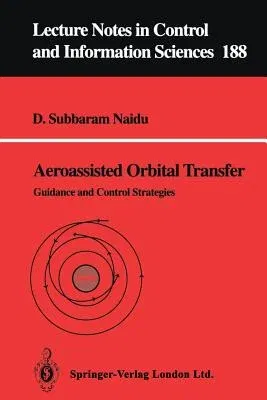D Subbaram Naidu
(Author)Aeroassisted Orbital Transfer: Guidance and Control StrategiesPaperback, 29 October 1993

Qty
1
Turbo
Ships in 2 - 3 days
In Stock
Free Delivery
Cash on Delivery
15 Days
Free Returns
Secure Checkout
Part of Series
Lecture Notes in Control and Information Sciences
Part of Series
CSCW: Computer Supported Cooperative Work
Print Length
182 pages
Language
English
Publisher
Springer
Date Published
29 Oct 1993
ISBN-10
3540198199
ISBN-13
9783540198192
Description
Product Details
Author:
Book Format:
Paperback
Country of Origin:
US
Date Published:
29 October 1993
Dimensions:
23.39 x
15.6 x
1.07 cm
ISBN-10:
3540198199
ISBN-13:
9783540198192
Language:
English
Location:
Berlin, Heidelberg
Pages:
182
Publisher:
Weight:
285.76 gm

